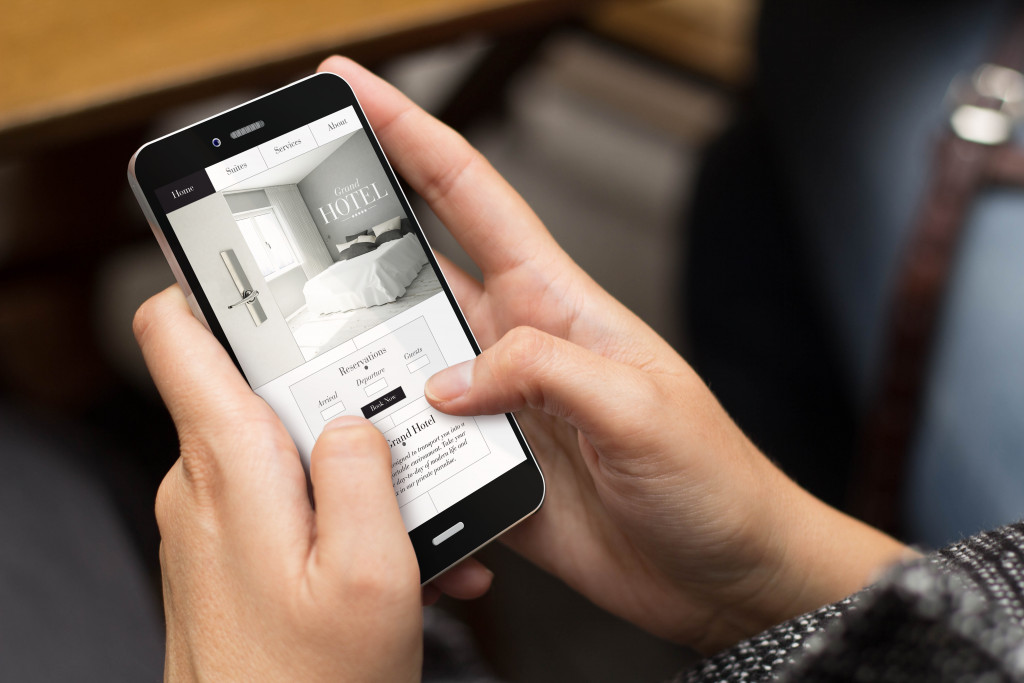Numbers don’t lie. All the imposed COVID-19 protocols that include social distancing and stay-at-home orders certainly were in place to protect us. As boring as it may be to stay for weeks on end at home, it was a necessity to limit virus exposure. But all that only became a breeding ground for a particular technology to thrive: mobile.
Of course, there’s a lot of things that a personal computer can do that mobile can’t. It’s really harder to create a spreadsheet using mobile. But when it comes to eCommerce, mobile rules.
In 2019 alone, eCommerce sales reached $2.3 trillion worldwide. However, mobile eCommerce is on the up and up. It is expected to hit $3.5 trillion in 2021. That would make it 22.3% more than the 2020 sales of $2.91 trillion. To date, there are about 5.22 billion mobile users in the whole world. And that number is growing by leaps and bounds.
True enough, mobile apps became the savior of the day. It became a knight in shining armor for just about every American: students who need to study from home and gamers who want to have a good time while on lockdown. Google Play downloads in October of 2020 reached 25 billion. Small wonder AppAnnie, a leading mobile analytics firm, concluded that the virus would advance mobile use by two to three years, at least.
If you’re just relying on your website to give you skyrocketing sales, you’re in for an unpleasant surprise. Below are ways a mobile app can raise your eCommerce sales through the roof.
Direct-to-Consumer Marketing
That mobile is everywhere is unquestionable. Its influence is obvious in how much online activity it generated during the pandemic. It allows customers to access the brands directly 24/7.
Imagine how much power mobile can give a brand. Through mobile to acquire information and interact with the brand. If there are new sales and promos, all that can be announced via mobile. Best of all, consumers can shop using mobile.
Thus, eCommerce businesses would leave a lot on the table if they don’t create a mobile app. The app can facilitate every interaction a consumer would need online.
Better Customer Experience
PCs are workhorses but when it comes to a person’s journey throughout the day, it’s mobile that defines it. You simply can’t bring your laptop or desktop with you everywhere. By extrapolation, though websites are useful. when it comes to customer experience, it’s the mobile app that can define it best.
Put in the picture AI, Machine Learning, and VR/AR and you have a very powerful way to conduct your Mobile Commerce customer experience. You can better define:
- Time of day when making a buy
- Minutes it takes to decide.
Mobile also facilitates deliveries. Mobile users can easily track their orders by monitoring delivery drivers using vans equipped with GPS technology. A good example here is the reliable PassTime GPS brand for vehicles. With the tech, you can track deliveries anywhere on the planet. Even better, those drivers can easily zero in on the order maker’s location via mobile GPS.
Better Conversion Rate

Nothing can push sales better than mobile apps. All that dependency on mobile means people relies on mobile to do just about everything they want to do online. By design, mobile achieves better conversion rates compared to a standalone website. In this battle, portability wins over computing power. A PC may be able to compute more difficult algorithms no doubt, but a mobile device can be anywhere.
That means mobile provides a far more seamless process. Key reasons that make this happen are:
- Mobile apps have push notifications you can easily see
- Mobile apps carry all vital info (shipping, payment) to checkout with ease
- Mobile apps can max on cameras for easy orders
In short, you have greater chances of closing a sale with mobile.
Brand Recognition
It just follows. As it’s carried just about everywhere, mobile increases brand visibility far better than your PC. Even traditional media fail to compare. Street banners, billboard ads, and flyers fall short in terms of visibility when going head-to-head with a device that people carry along every time.
The amount of time that people spend on mobile tells you it’s easier to build your brand on mobile than anywhere else. But there’s a caveat. You need to pair your branding tactics with stunning UX/UI design. More often than not, app users are bound to uninstall their app if they find the experience too challenging.
Greater Customer Loyalty
A friend in need is a friend indeed. With a mobile app, all you need is a “tap of your finger” and you’re served. If you want food delivered, there’s a mobile app for that. If you want a massage, there’s an app for that.
No doubt, it’s a mobile-app-defined world. In such a world, you need not just a mobile app, but a mobile app that rises above the competition. It’s essential, therefore, that you map the customer journey. Make the experience personalized while keeping your brand consistent.
It may be a mobile world but above and beyond it’s still how you take care of customers that counts. Indeed, that’s all that matters.

















